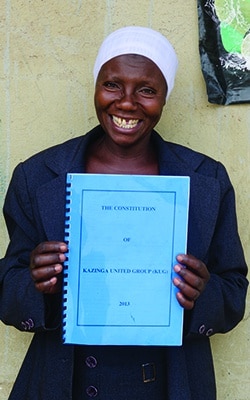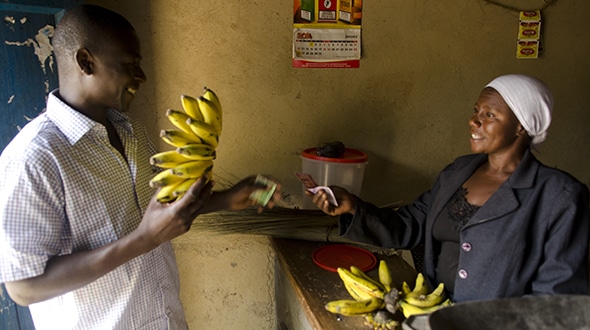As the elected leader of her local farmers’ group, 38-year-old Samada Masanda embodies the change she says is happening across her community.
‘Before, parents here didn’t bother to educate girls. But now they’ve seen that women can be leaders, so they educate all their children.’

With no formal training, Samada had no option but to become a farmer. She has no regrets. 20 years working in the field has allowed her to raise a family. She does, however, crave a different story for her own daughters:
‘My dream is for my three daughters to complete school so they have the opportunities I didn’t.’
But school fees are expensive and life in the Ugandan countryside is unpredictable.
Just two years ago Samada’s harvest failed due to drought. The family survive for weeks on the only food they had. ‘We ate cassava for breakfast, lunch and dinner,’ she recalls.
A loan of £50 (200,000 Ugandan shillings) that she received under a Self Help Africa savings project has helped however, and six months ago Samada opened a small store. She now works every day on her farm and each evening in the store.
She doesn’t earn a great deal from her business, but the supplementary income has given her the funds to pay for her daughters education.
‘Both of my businesses – farming and trading in the shop are uncertain, but at least if one fails, I know I can still make some money from the other,’ she says.

